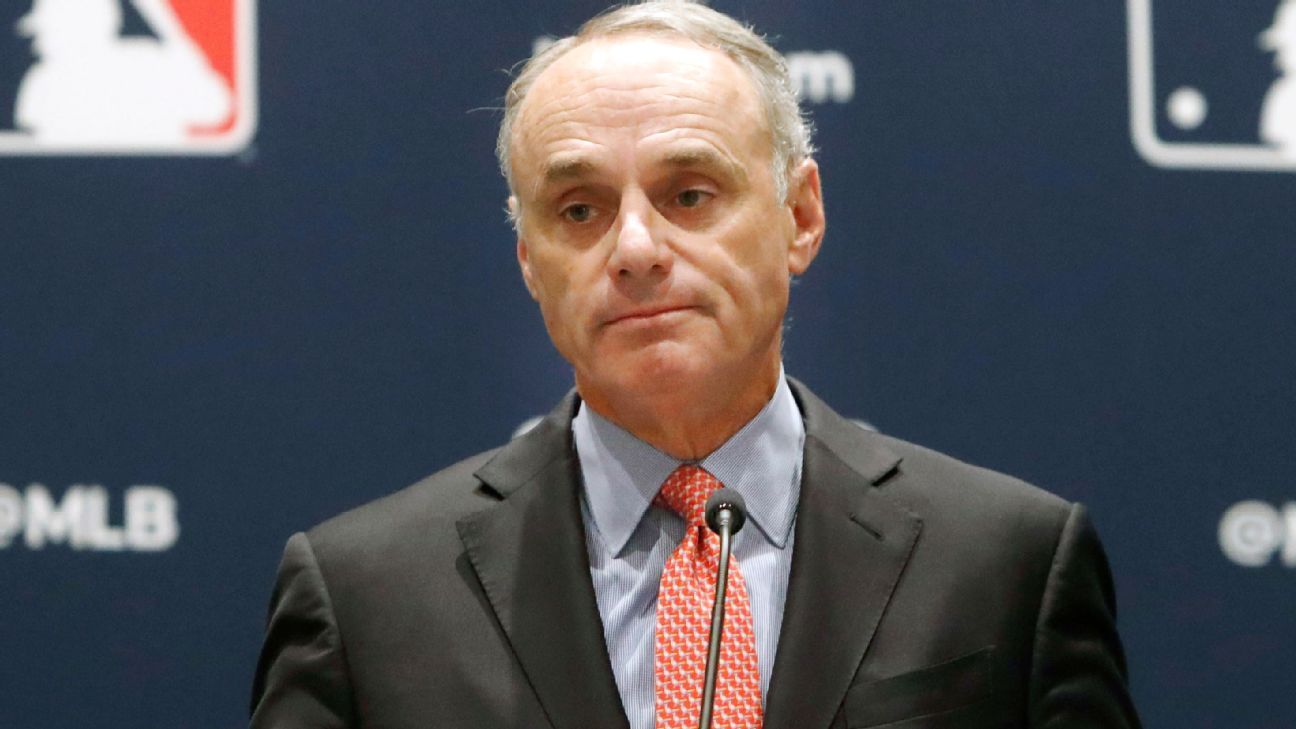
The current labor deal is set to expire on December 1st, but the owners haven't decided if they will lock out the players.
"I don't think '94 worked out well for anyone', said Manfred as the owners' meetings concluded. I think we need to look at other sports. The pattern has become to control the timing of the labor dispute and try to minimize the impact of the season. That's what it's about. It's not doing damage to the season.
The main focus of owners, team presidents and league executives who met less than two weeks before the deal expires was labor unrest. While the league and MLB Players Association have met frequently, they are far apart from an agreement, having made limited progress on core economic issues.
"We understand that time is becoming an issue," he said. That's a challenge. We've had challenges in the past with making labor agreements, but we have a good track record of overcoming those challenges. I can tell you from the clubs' point of view that they are committed to trying to get to an agreement before December 1st.
After a rocky five-year period during which players protested at the average salary in the sport dropping as pre-COVID-19 revenues spiked, MLB's 26 year streak of labor peace is in jeopardy. The union has pursued a number of changes, from lifting the competitive balance tax threshold to paying younger players more to disincentivizing losing by penalizing teams that currently benefit from doing so with high draft picks. In August, the league offered a core economics proposal that was rejected by the union.
The 2020 season was delayed for months at the beginning of the Pandemic because of the chasm between the parties. After several proposals both ways and late-stage attempts to strike a deal, the sides agreed to a 60-game season.
The focus on 2020 has been excessive. I've been in charge of labor since 1998. We have found a way to keep the game on the field, every single time, I have found a way. I don't put a lot of weight on mid-term negotiations in the middle of a crisis. We've had difficult situations in the past. We have found our way through them. We have great people. I think we will find our way through this one.
"We never allow personality or past events to affect our pursuit of the most fundamental goal," he said. That is to make an agreement. I think that's an essential aspect of being a labor negotiator. I do. I know that applies to the people involved in the process, at least from our side.
The negotiations would not be helpful to the process right now, said Manfred. He said that the best thing for the clubs and the fans is to do everything they can to make an agreement. The fans don't want a labor dispute, and that's why we need to make a deal.
At the owners' meetings, there are other topics covered.
The adoption of a pitch clock in major league games feels more and more inevitable after a presentation by the league's competition committee highlighted how it shaved more than 20 minutes off of games while seeing increased offense.
The success of the pitch timer experiment in the Cal League has the owners very interested in it, and we've seen some of the same outcomes in the Arizona Fall League.
Fear about financial issues with regional sports networks trickles down to teams that rely heavily on local television money, which was a talking point among owners at the meetings.
The problem of the RSNs needs to be solved, but an opportunity that needs to be seized as well. The clubs are supportive of aggressive action to make sure that we reach our fans in the most effective way possible.
The league's powerful executive committee was given a proposal by the Tampa Bay Rays that would have them spend half the season in the city. The other half of Montreal is called the Pete area. The council didn't make a decision on its viability because of the press. It's a complicated topic.
The Oakland A's are looking into Las Vegas for a possible relocation and are also trying to find a way to stay in Oakland with a new stadium.
"If the industry could speak, I think they would agree with the effort that's being put forth both places," he said.
After the league began enforcing foreign-substance rules in the middle of the 2021 season, Commissioner Rob Manfred was open to the possibility of using a pre-tacked baseball as soon as the upcoming season.
He said he was hoping to have live-game testing in spring training. We could use a new ball next year. We're continuing to work on that project and have made real progress. The trick is tackier but not tacky.
After the meeting about diversity, equity and inclusion, Manfred said he would empower Michael Hill and Tony Reagins, two former general managers now working for the league who are Black, to push initiatives in a league whose ownership and executive ranks are almost exclusively comprised of white men. "I've got two great guys that I think can be really helpful on that topic, and I've not run a team myself, so there's a little credibility gap sometimes," he said.
